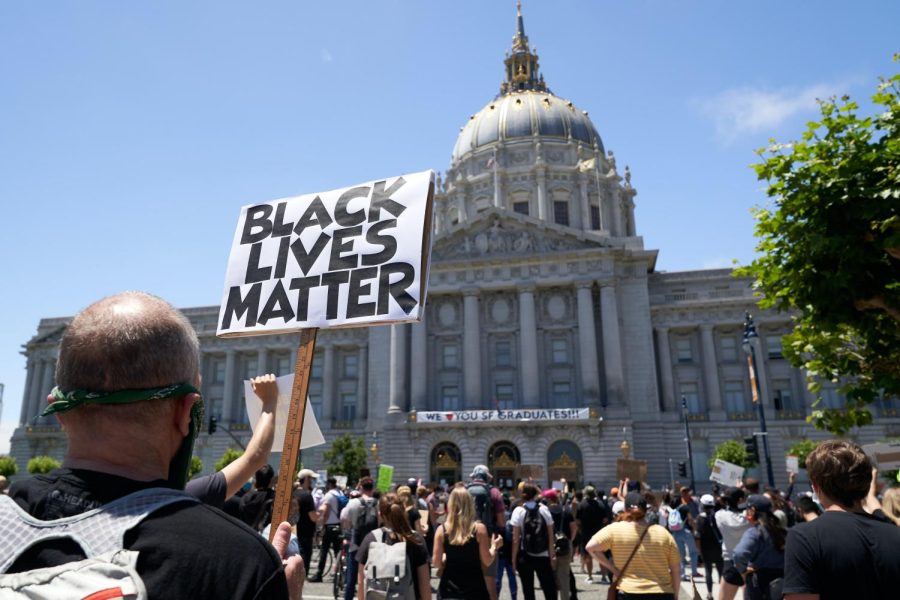Opinion: SFPD does not need more money
Amid budget shortfalls across city departments and despite a mandate in response to 2020’s summer protests, the Board of Supervisors approved a $27.6 million budgetary supplement for San Francisco’s Police Department (SFPD), with only supervisors Shamann Walton and Dean Preston opposing. Although San Francisco admittedly has various issues, such as drug abuse and the worsening mental health crisis, an increase in policing is not the solution.
The San Francisco Municipal Transportation Agency (SFMTA), which runs Muni, is facing a $795 million deficit in the next five years. Additionally, SFUSD, the City’s public school district, faces a $40 million deficit. Pouring more money into one of San Francisco’s least effective departments is not the way forward.
“I was really confused why the City [specifically the Mayor] was asking for the approval of $27 million for SFPD given the recent backlash and controversy surrounding police officers,” said Yosi Colin ‘23, who serves on the San Francisco Youth Commission.
In an era marked by increased public awareness of police brutality and the issues endemic to American policing, it should be clear that the way forward is not through more policing. This funding for expanded policing could instead go to San Francisco’s mental health response programs, which are proven to work, and opening more safe injection sites.
Despite the police department’s claims of dire understaffing, a report by the City’s Budget and Legislative Analyst found that even with a 16% decline in officers in the last three years, per-officer productivity also fell. During that period, violent crime and property crime fell 14% and 7% respectively. Despite the drop in crime, SFPD response times have risen. The City and County of San Francisco stated, “The average amount of time it takes an officer to show up to a critical situation has, on average, grown dramatically worse: From 6 minutes and 25 seconds at the start of 2016, to 8 minutes and 47 seconds by the end of 2022.”
“The report shows that the San Francisco Police Department overspent its overtime budget like money was no object — all while its own metrics for performance were falling,” said Preston in a statement.
SFPD has recklessly spent money on overtime and other things that have not increased public safety, like stationing multiple officers on one corner in Union Square, essentially acting as publicly funded private security for Louis Vuitton. “I am first really confused as to how the SFPD went extremely over budget with police overtime and other costs. I don’t understand how there was no one monitoring how much money they were spending or someone overseeing their budget,” said Colin.
In a time where it is clear that more police will not solve our problems, increasing police funding is not the answer. We need to invest in solutions instead of spending millions for police to sweep problems away.
San Francisco uses policing not as a solution to its problems, but to hide them. SFPD is infamous for its sweeps of encampments, where unhoused people are evicted and have their belongings taken from them. The Department of Public Works is required to return belongings and frequently loses seized items, costing the City thousands of dollars in settlements, according to the Stolen Belonging project.
Instead of using force to hide our problems from sight, we need to be investing in people and solutions that actually address the root causes of our problems. Hiding homeless people from sight does not solve homelessness, and arresting drug users does not solve our worsening mental health and addiction crisis. City Hall’s refusal to invest in non-policing alternatives proves that it cares only to hide its problems, not solve them.












